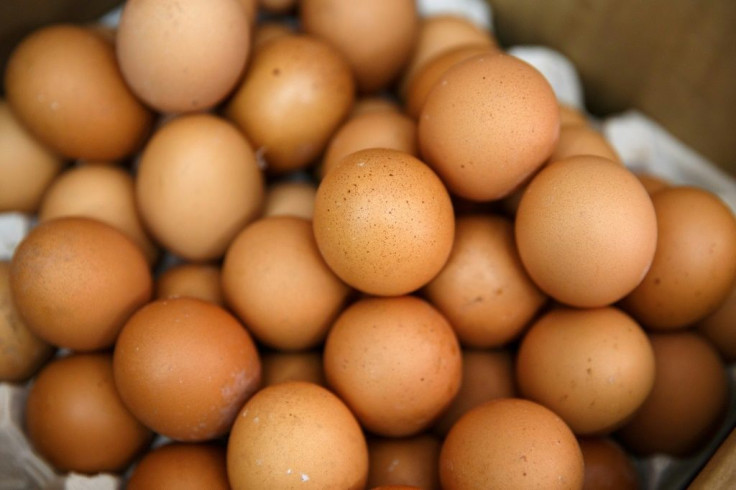Coronavirus News: Eggs Prices Triple Ahead Of Easter Due To Spike In Consumer Demand

KEY POINTS
- Egg prices has nearly tripled in price ahead of Easter in response to massive consumer demand during the COVID-19 pandemic
- Analyst firm Urner Barry compared the demand to that seen before a "major snowstorm," but on a national scale
- Some supermarkets have said its been difficult trying to balance consumer demand and pricing with keeping suppliers satisified
The scramble to stock up on goods during the coronavirus pandemic has caused the price of eggs to nearly triple across the U.S. as grocery stores struggle to keep up with demand ahead of Easter.
Data firms Nielsen and Urner Barry have tracked the surge in sales since January, when egg wholesale prices were as low as $0.78 a dozen following the 2019 holiday season. Prices rose to $1.03 a dozen by February, which Urner Barry said is a normal price hike following the holidays. However, prices had jumped dramatically by March 21 as wholesalers’ average price hit an all-time high of $3.09.
Nielsen followed up Urner Barry, saying egg sales for the week of March 21 had jumped 86% compared to the same week in 2019. The four week average for March 2020 saw an overall jump of 29% in sales from 2019.
“It's essentially tripled over the last three weeks, with retailers seeing demand four-to-six times the normal volume in a very consolidated period,” Urner Barry analyst Brian Moscogiuri told reporters.
“There are only a certain amount of chickens laying a certain amount of eggs each day, so supply is limited.”
Moscogiuri compared the demand to the kind of demand seen in markets ahead of a “major snowstorm.” The biggest difference is that the COVID-19 pandemic has created that demand on a national level. This has forced markets to order as much as six times the amount of eggs normally ordered and has placed tremendous strain on the suppliers.
The U.S. Department of Agriculture support Nielsen and Urner Barry’s reports, saying that the surge in sales and prices is not incentivizing customers or retailers to buy eggs ahead of Easter.
“It has begun to look likely that the traditional Easter demand period for shell eggs, now just over a week away, may not materialize with many retailers not issuing circulars and those that are focusing on cage-free and organic offerings which, largely of the brown shell variety, are poor candidates for Easter coloring activities,” the USDA said.
The hike in egg prices has not gone unnoticed by retailers, who must adjust to the supply and demand.
Avi Kaner, co-owner of New York-based Morton Williams grocery stores, expressed frustration with media over how egg suppliers were “taking advantage of a national emergency at a time the country should be working to help each other.”
© Copyright IBTimes 2025. All rights reserved.




















